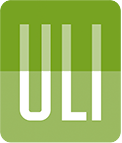U.S. Research Approach
To determine the most effective actions organizations can take to advance women in the real estate industry in the United States, WLI took the following approach:
A web-based survey was sent to the 6,539 nonstudent female members of ULI based in the United States. The survey was open May 27 to June 12, 2015, and 1,234 responses were collected—a 19 percent response rate. Survey respondents were highly representative of the overall group of ULI female members by responsibility level, organization type, and geography.
The survey represents a diverse group of industries and organizational sizes, as well as a wide range of age groups and occupational tenures within organizations.
In May and June 2015, focus groups were convened in Houston (with participants from across the country), Atlanta, New York City, and Washington, D.C., to further explore the WLI model for organizational approaches to developing women leaders. These focus groups included a diverse selection of women with respect to age, professional level, and organization type.
The ULI member database was mined to provide data on the organizational level of female members compared with male members.
WLI conducted six case studies of organizations where ULI members work to provide examples of effective approaches in promoting women to leadership roles. One-on-one interviews were conducted with more than 45 men and women during the case study process, which has further informed all aspects of the research.
Details on Approaches to Advancing Women
Leadership Training
Leadership training includes programs designed to develop greater capacity as a leader as well as self-awareness activities, such as 360-degree feedback and tools like the Myers-Briggs Type Indicator (MBTI). Evaluation of past experiences also included rating the importance of technical skills training and development programs.
Objective Hiring, Performance Reviews, and Promotion
Women were asked to rate the importance of three distinct areas in terms of their development—metric-based performance evaluations, objective promotion policies and practices, and objective hiring policies and practices. Ranking for priorities going forward grouped these into one category—“providing objective performance evaluation, hiring, and promotion policies and practices.”
Flexibility and Family Leave
Flexibility and family leave were divided into two categories for the survey of past experience—“workplace flexibility (start/stop time, etc.)” and “flexible/generous maternity, parental/elder and family care.” For the ranking priority going forward, the two items were combined into one category—“offering workplace flexibility and parental/family leave.”
Managers Who Coach and Develop
For past importance, the question was framed as “manager(s) who coaches and develops direct reports”; a very similar item, “managers who coach and develop their direct reports,” was the item ranked to test the priority of creating a workplace where managers actively coach and develop the capabilities of their direct reports.
Mentoring and Sponsorship
For the rating scale, the items related to this topic included rating the importance of “senior-level sponsors within my organization who advocate for me” and “relationships/network inside my organization (role models, mentors, and peers).” The rating of future importance summarized these approaches as “making mentorship and sponsorship of women a priority.”
Development of External Networks
In terms of development to date, the respondents rated the importance of “external networks outside my organization (colleagues, customers, trade associations, family).” The corresponding category for the approach going forward was organizations that “provide opportunities to develop external networks.”
An Inclusive Culture
This approach was described in rating past importance as “workplace culture that is inclusive,” and for approaches going forward, the category was “creating an organization that is inclusive.” Specific input and examples from focus groups and case studies explored the specific values and behaviors that create an inclusive culture.
Visible and Challenging Job Assignments
This approach was added to the WLI model in response to input from a national focus group convened in Houston in May 2015 at ULI’s Spring Meeting. Before the WLI draft model was revealed, participants were asked to identify the experiences that have most contributed to their development and career advancement. The overwhelming responses were examples of specific work assignments and projects where the women had risen to challenges that were over and above those they had tackled in the past. This category was added to the model and further explored during subsequent focus groups and case studies.

